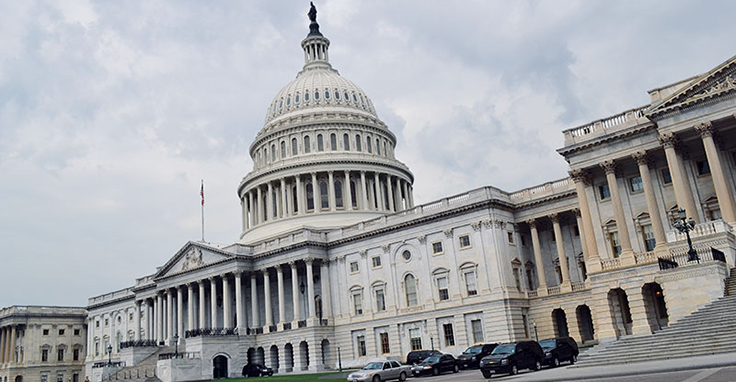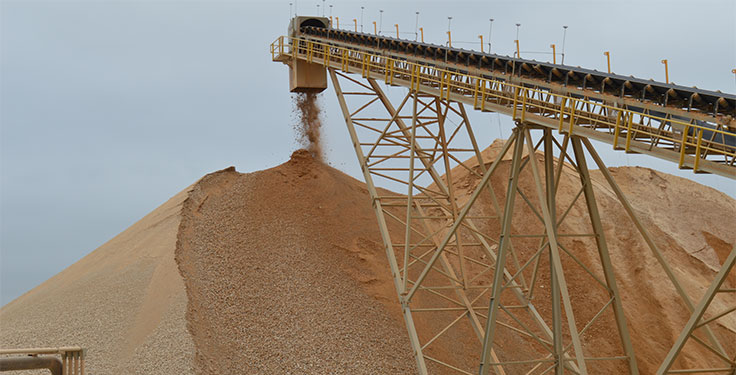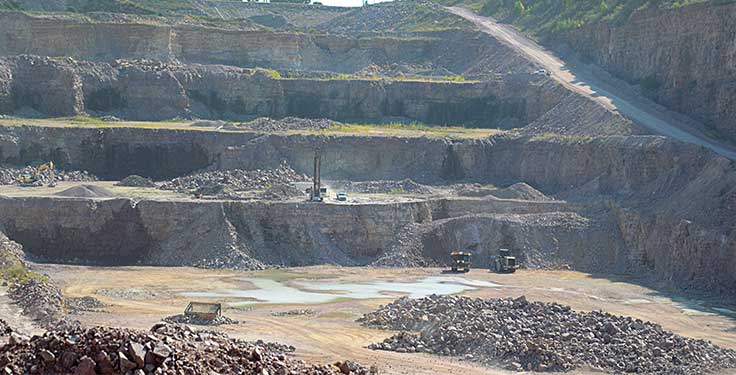In Part 2 of a two-part interview, Michael Johnson and Michele Stanley of the National Stone, Sand & Gravel Association (NSSGA) discuss the prospects of a highway bill coming together in 2021 and what to watch for in terms of regulations under the Biden administration. Johnson, president and CEO of NSSGA, and Stanley, vice president of government and regulatory affairs at the association who was just named a top 2020 lobbyist by The Hill, discuss the presidential election and what sort of governing to expect from Joe Biden in Part 1 of the P&Q interview here.
Let’s talk about infrastructure. It seems that the likelihood of passing an infrastructure bill goes up with a new administration and a divided government in place. What are your thoughts on the possibility of infrastructure finally being addressed in 2021 – and, possibly, early in 2021?

Johnson: I think it’s more likely now than it would have been if we had a Trump White House that was at serious odds with a Democratic House.
Looking at Joe Biden and Mitch McConnell as the Republican leader in the Senate, I’d challenge you to go back and look at the major pieces of legislation passed during the Obama administration. You’ll find that most of those bills were the result of Joe Biden and Mitch McConnell coming together.
Stanley: I agree and would add that the House is already working on their version of the [infrastructure] bill. They’re already doing outreach about what changes people would like to see from H.R. 2. At least on the House side, they’re definitely intending to do [infrastructure] in the first 100 days.
Anecdotally, Democrats for some time have been pushing their desire for infrastructure investment. Things we’ve heard coming out of the Biden administration, like from Janet Yellen (Biden’s choice for secretary of the treasury) and the national security adviser [choice of Biden’s, Jake] Sullivan, have all been very positive toward infrastructure and the need for not only doing that for stimulus but also to focus on defense and make sure we have infrastructure in place.
Johnson: The Democratic majority in the House did not expand. They have fewer seats, which means they are even less likely to pass bills that are on the progressive extreme. They’re going to have to do legislation they can get through the House and then the Senate.
We’re looking at a Senate that is going to either be a small two-seat majority for the Republicans or possibly 50-50 with a tiebreaker in the VP for Democrats. If they get control, I think the Democrats realize their new president needs some victories.
Infrastructure is essential to getting the economy going again. And [legislation] becomes about your wants and needs. You want to do those progressive things when you have a 30-seat majority. But when it’s as small as it will be, the ‘wants’ get replaced by the ‘needs.’ That’s where we are, especially with the Senate.
On the energy front, we heard, especially very late in the campaign, about how Biden would eliminate fracking. Aggregate producers, obviously, rely heavily on oil and gas. They could not effectively run their plants or equipment without it. All that said, do you have any expectation or sense of how the Biden administration will ultimately approach oil and gas?
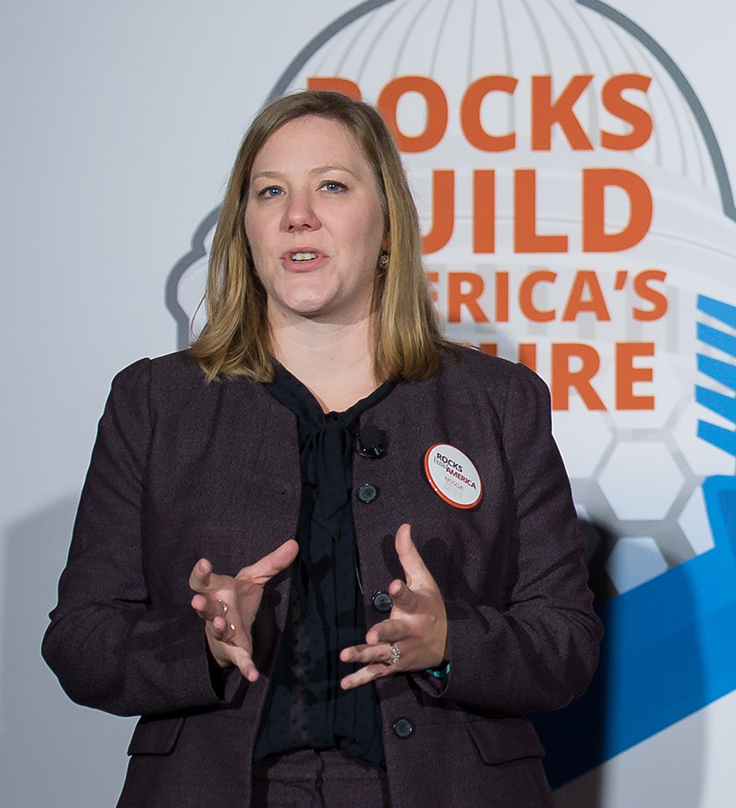
Stanley: Anything new the Biden administration is going to do in this area is going to take years to come to fruition. We (NSSGA) would be involved in all aspects of that to ensure our members’ needs and desires would be taken into consideration.
One of the things we see as an upside to some of the additional energy infrastructure push is the large amount of aggregate that goes into windmills and solar farms – things like that. It presents an opportunity for our members to sell and use more of their products in energy’s way forward.
The bottom line is we try to look for opportunities in anything that comes out of either chamber of Congress or the administration. This would be another one of those opportunities.
Johnson: Any changes the administration would pursue would take years. What I have heard and read out of the Biden campaign – and I haven’t heard anything different out of the president-elect yet – is that he would end federal subsidies for fracking. I think there will be a lot of members of Congress from the president’s own party who will have a lot to say about that, including (Sen.) Joe Manchin (D-West Virginia) and (Sen.) Sherrod Brown (D-Ohio). They’re important votes. Sen. [Bob] Casey (D-Pennsylvania) is an important vote, too. They will have an opinion on that.
It’s not just about our use of energy, it’s even more about NSSGA’s Industrial Sand Division. They are a big part of American energy independence and producing energy at home that strengthens our economy.
Do you have any expectation on what we might see at EPA (the U.S. Environmental Protection Agency) in the Biden administration? The Wall Street Journal, for example, recently reported that the Waters of the U.S. (WOTUS) rule might be something to be looked at again.

Stanley: I think the Biden administration is going to face significant challenges in undoing the 2020 WOTUS rule. The 2020 rule, unlike 2015, doesn’t have any significant legal setbacks yet. There are 13 states where there’s litigation, but none of them have gone like they did in 2015. We feel this new rule is lawful and reasonable, and we communicated its importance to economic recovery and the infrastructure side directly to the administration.
It will take years, if anything does happen. We’re preparing for some sort of amending of the rule.
Going back to the idea of [slim] margins in either the House or Senate, it’s going to be hard for them to do much more than large amendments. So we’ll be involved from the ground up.
Johnson: I think it comes back to politics. In this situation, all politics really is local.
Biden is going to have a midterm in two years. The Democrats in the Senate and a lot of the members in the House who took traditionally Republican House seats – or [districts] where Trump ran well in – are going to have a serious battle on their hands if they create an environment where they have a WOTUS rule out there that creates the possibility of [the Biden administration] becoming a ‘two-year presidency.’
The thing I’m more worried about – and where we will stake out a strong position – is on some of the things like the appointee for the Department of the Interior. We cannot afford to have someone in that position who thinks all mining is bad mining, restricting access to aggregates across this country. We have, and will continue to express, a strong opinion about being able to access aggregates to keep infrastructure affordable and help communities build homes, schools and other things. All of those things are essential and need to be done locally.
Any parting thoughts on the election, the transition or what to watch for in 2021?
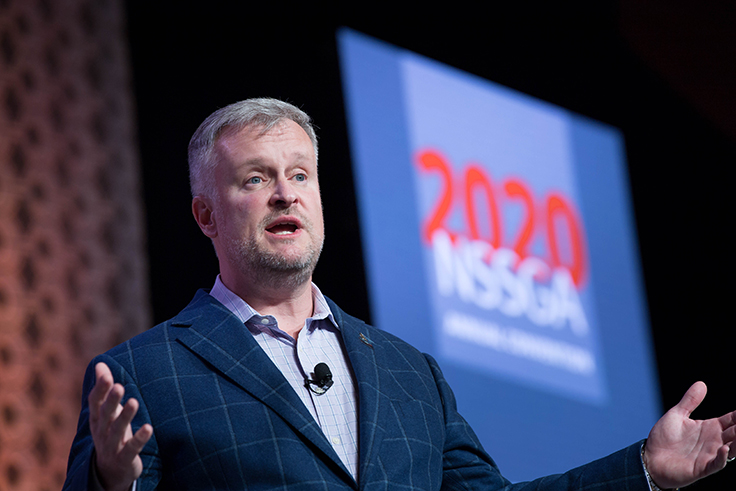
Stanley: We have already been meeting with new members of Congress in order to make sure those members know about our issues and that they are familiar with our members. We’ll continue to do that through December and in the new year to ensure the new folks coming in know who NSSGA is.
Also, we are following the EPA administrator process closely for a lot of reasons. We’ll be voicing our thoughts when the time comes, and the same goes with the Office of Chemical Safety & Pollution Prevention within EPA. We want to make sure someone in that position is not super progressive and follows sound science.
Johnson: NSSGA was determined to make sure that, no matter what happened Nov. 3, that this association was ready to advance the public policy that was important to this industry. We did that. We did that not just because we have a great team, but we did that because we have a great membership.
We have people in this industry who engage in their grassroots; who have hosted quarry visits; who, in the new age of COVID, have participated in virtual meetings with Congress. They supported ROCKPAC in ways that allowed us to support incumbents, so we make sure we can retain a strong base of supporters in Congress who are committed to help us advance policy.
Featured image: P&Q Staff

